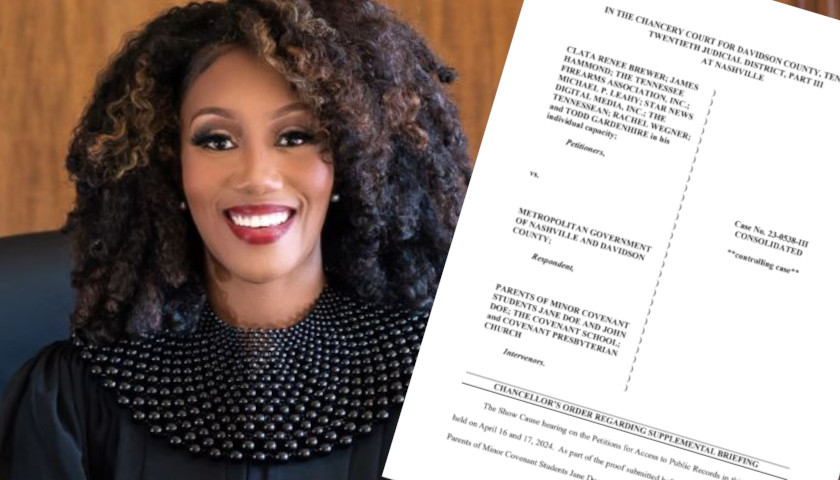Live from Music Row, Monday morning on The Tennessee Star Report with Michael Patrick Leahy – broadcast on Nashville’s Talk Radio 98.3 and 1510 WLAC weekdays from 5:00 a.m. to 8:00 a.m. – host Leahy welcomed the original all-star panelist Crom Carmichael to the studio for another edition of Crom’s Crommentary.
CROM CARMICHAEL:
Michael, there’s an article in The Wall Street Journal by James Freeman titled “The IRS Won’t Just Be Taking More of Your Money.” And as we pointed out last week, the percentage of audits that are done on people making less than $200,000 is 77 percent of all audits done to that group.
And Janet Yellen says that that group will not see an increase in the rate of audits. Well, if you triple the number of audits, then that means that the people making under $200,000 will be three times as many people in that category who are audited, because that’s where the money is.
The Joint Committee on Taxation, which is Congress’s official tax scorekeeper, says that 78 percent to 90 percent of the money raised – let me say that again, 78 percent to 90 percent of the money raised – from underreported income will likely come from people making less than $200,000 and four to nine percent will come from people making over $500,000.
So it’s important that people know where Joe Manchin and Kyrsten Sinema, who they were targeting, and who all of the Democrats in the Senate, literally every one – the voters need to know that, if they are typical, if they’re making less than $200,000, then they are the target.
But here’s something else that’s interesting, Michael. Let’s just do a simple math here. Let’s say you have 10 people on an island, and they are 10 people who get along, and so they all work. There is no government per se on the island.
They all live in the same area, so if they have an issue they want to discuss, they discuss it after work and they vote on it. And that’s how the rules are set and that’s how the island runs.
But let’s say, for example, that one day, or one evening, somebody says, you know what, I would like to act as the government – so let’s vote on that.
So here’s the question the people should be voting on, and that is that if you take one of the 10 people and make them the government, then they will spend their time being the government, but they will not spend their time producing what they were producing before.
And so that means the other nine people now have to pick up that person’s production and so the government costs them an additional 10 percent. If you have one person who retires of the 10 people, now you have a retired person who the other eight people now have to … they’re now having to work to meet the needs of two people who are now not producing at all. That’s just pure math. If you hire a bunch of IRS agents, then here’s what’s happening here.
According to the National Taxpayers Union, individuals and businesses currently spend 6.5 billion hours a year on federal tax paperwork. That’s the equivalent of 3.6 million people working full time on this activity.
So I want to go back to the island. This would be if you decide to have on the island one tax collector, or two tax collectors. But the point is the burden falls on everyone else.
So here you have two things: one, taxpayers are going to be paying for the auditors, but then the citizens and the small businesses have to then comply.
And by the way, this tax bill has just passed added a whole bunch of complexity to our tax system. So it wasn’t just a simple tax bill where they raise the rates on corporations and passed some environmental stuff. This greatly complicates the tax code even further.
And then with the increase in auditors, it means that there will be more billions of hours that the private sector is having to spend to comply with the federal government, which cannot be good for the productivity of our economy, and can’t be good for the wages of average Americans.
Listen to the Crommentary:
– – –
Tune in weekdays from 5:00 – 8:00 a.m. to the Tennessee Star Report with Michael Patrick Leahy on Talk Radio 98.3 FM WLAC 1510. Listen online at iHeart Radio.








